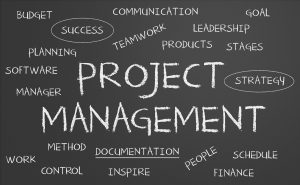Which is More Important: Knowledge or Certification?
Have you wondered which is more important: having the right knowledge and experience OR having a certificate? For too many aspiring professionals, certifications often win this contest because of the attractive increase in compensation and marketability. Here are two short stories illustrating the problem.
- In a recent meeting with a senior project executive of a Fortune 500 U.S. firm, he complained of the quality of the project management professionals, even those with certifications like the Project Management Professional (PMP). Poor understanding of project management fundamentals is prevalent. Candidates lack basic knowledge such as the differences between risks and issues or how to best expedite a project schedule at minimum cost. Worse, candidates show a genuine lack of meaningful experiences, such as dealing with important stakeholders and managing their expectations, communicating properly (especially in a virtual team) or how to create a well-organized project schedule.
- The complaint reminded me of the challenges I faced when I was the head of global project services for the Big 4 only a few years ago. The global project services that I ran hired about a dozen project managers a year, from entry level to the most senior level, and thus, we were always What I found was that certifications like PMP were just not enough, the candidate had to know the essentials of project management and gain real work experience. To my dismay at that time, many PMPs could not run even moderately complex projects.
Why Having the PM Knowledge is Important?
You may wonder why am I raising this problem now. After all, this issue is likely to be perennial. I believe there is a greater urgency now than ever before – professionals must learn or relearn the fundamentals because the competition is becoming more global and virtual. Without a solid foundation of project management knowledge, even experienced PMPs may fail and cost themselves and their sponsoring organizations time, resources and confidence. Three more stories:
- I just came back from the PMI China Symposium in Shanghai on September 22-23. There, on an early Sunday morning, I saw about 1,500 to 2,000 aspiring and professional project managers crowded into presentation rooms to learn. Not only was there standing room only, there were people lying on the floor between the first row and the presenter. In addition, there were about 25 people squeezed through a small door opening just to view the presenter. (For a full account of the PMI China Symposium, click here .) This phenomenon of eager learners are replicated every conference I attended– in Rome (PMI EMEA Congress), in San Diego (PMI PMO Symposium), and likely in Chicago (PMI Global Conference). So if you do not have the right skills, you may be sorry when the time comes.

- I have a friend in his late 30’s. As a graduate of an Ivy League university, he is an exceptional person in every way. He is capable and smart, he is an active learner, he has class, and his ego is big. A few years ago, he was really down on something, and we went out for a drink. He confided in me that he failed so miserably on a large and mission critical program that he lost his confidence. The incident turned into a full blown mid-life crisis ending with a divorce. Apparently, his company had a mission critical program, and he nudged his way to be the program manager. He was not the most qualified among the candidates as his background was in operations, but he rushed to obtain the Program Management Professional credential and got the job. But from the beginning, he had difficulties with managing the program governance team and directing the project managers and their teams. There were many surprises and since his background was not in complex project and program management, he was constantly trying to figure out both project and program management. Eventually, the company replaced him with another program manager, and he was depressed for a long time. This is a classic case of having the credential but not the true qualifications
- As many of you know, I am the lead project management professor at Montclair State University (MSU). As the Graduate Program Coordinator for the Graduate Project Management Certificate program, I interview every candidate. I still recall the meeting with one candidate in August, and the topic of certification came up. This candidate was a small business owner, and he had no interest in the certification. He said: “I need to learn how to manage projects well; a certification is just a piece of paper. I have been in so many businesses where I have seen people with certifications. But it’s far more important that they know their stuff.” Thus, his interest was to learn project management.
How to Gain Project Management Knowledge?
So how can someone learn the project management essentials and beyond? Here are five great ways, and you can do one or more of them at the same time.
- Read – Have you read the latest PMBOK 6.0 and Agile Practice Guide (all 900+ pages)? There are some great books out there. How about Kerzner’s book on Project Management 2.0 (also available in Chinese)? Did you know that PMI is working on at least three more standards/guides to be published over the coming year? So there are plenty of opportunities to learn.
- Ask – Attend PMI meetings, with your local chapter or larger gatherings like the PMI Global Conference in Chicago, and ask the senior project professionals there. I had the pleasure of attending nearly a dozen different symposiums recently: PMI PMO Symposium, China Symposium, EMEA Congress, NA Global Congress, TampaBay, Chicagoland, Silicon Valley, New Jersey… and at each of them, I meet people and ask questions. There’s just so much to learn.
- Mentor – Find a mentor at work or join a PMI Chapter and seek a mentor there. And when you become an expert, you can contribute to the profession by being a mentor yourself. I have had multiple mentors my entire life, and I still have at least 3. So don’t be shy, ask someone you trust to be your mentor. But also give back; I have at least 4 mentees.
- Practice – Volunteer at your favorite non-profit or with PMI and its chapters. Practice your project management and leadership skills, if opportunities are not there in your workplace. Volunteering is a great way to take on new roles that you otherwise would not have the opportunity. Do you know any volunteers who have been fired for trying to do their job?
- Continuous Learning – Take a college course, attend a training class, or participate in a study group. Today, with so many advancements, there are plenty of great resources online. Some people can learn just by reading. But if you are like me, then I need real guidance. Thus, consider real classroom or live virtual classes where there is an expert on the other end who can answer your questions.
Whether you are a student aspiring to be a project manager, an entry-level professional, a practicing project manager with some gaps in knowledge, or an experienced project leader who wishes to refresh with the latest development, remember that real knowledge is beyond just certifications. A certification is a badge telling the world that you are ready. But the true knowledge and capability lie within you. Good luck and happy learning.
Introducing Project Management 360
As a premier PMI R.E.P. and one of the few firms that offer the full spectrum of project management training, PMO Advisory is starting a new program in 2018 – Project Management 360 (PM360). This is a comprehensive program designed for aspiring project management professionals to “learn” project management. The PM360 program is composed of five main training courses:
- PM Empowerment – 35 hours of learning, including participating in exam study groups
- CAPM Lite – 4 hours of exam preparation bootcamp, designed mainly for individuals who are participating in our PM Essential or who are self-studying but wish to access our large online exam simulator and learn from the experts.
- PM Express – 3-4 hours of specific topics across PMBOK 6.0 plus other related topics. There are over ten topics in this series, collectively similar to the list of topics in the PM Essential.
- PMP Bootcamp – 35 hours of preparation, designed to pass the PMP exam on the first try.
- PMP/CAPM Study Groups – 1-2 hour study groups offered multiple times a month. These study groups are facilitated by our trainers and rotate among the most common topics. Participants are encouraged to submit questions in advance, and as time permits, questions can also be asked during the Study Groups.
The PM Empowerment course is composed of 8 modules, each designed to cover one or more knowledge areas, with a focus on learning to understand and apply the essential concepts, tools, and techniques. Participants in this program should develop a firm understanding of project management and how to tackle the major tasks and challenges in project management.
The CAPM Lite is an extension of the PM Essential. This expedited bootcamp is designed to help the PM Empowerment participants and also those who plan to self-study for the CAPM. The course provides four hours of training plus access to our online CAPM exam simulator to help our participants to pass the CAPM exam on the first attempt.
The PM Express is designed for busy people who wish to be empowered with a specific project management topic quickly. Each course is about three to four hours, and participants should be able to apply the concepts immediately. Depending on the topics, we will also supply templates and tools so the participants can start building their own toolkits. Likely the most popular of the Express Courses will be the CAPM Lite, which includes full access to our large online exam simulator.
The PMP Bootcamp is our popular 35 hours of exam preparation that includes three full days of classroom training plus a variety of live virtual sessions, practice exams, and study groups. Our experience shows that by providing a focused package of these services, participants can pass the PMP exam on the first try.
Last, but perhaps the most important component of the PM360 is the study groups. Experience has shown that people who study together are far more effective than studying alone. Each study group is run by one of our certified trainers. As a facilitated session and depending on the number of pre-submitted questions, the trainers will either cover one of the more popular PMP topics or dive straight into addressing the questions. Each session is up to two hours, and if time permits, participants can ask additional questions.
The PM360 can be purchased as a package or a la carte. We are currently refining the pricing and package details. To express an interest or inquire about the program, please complete this form.


